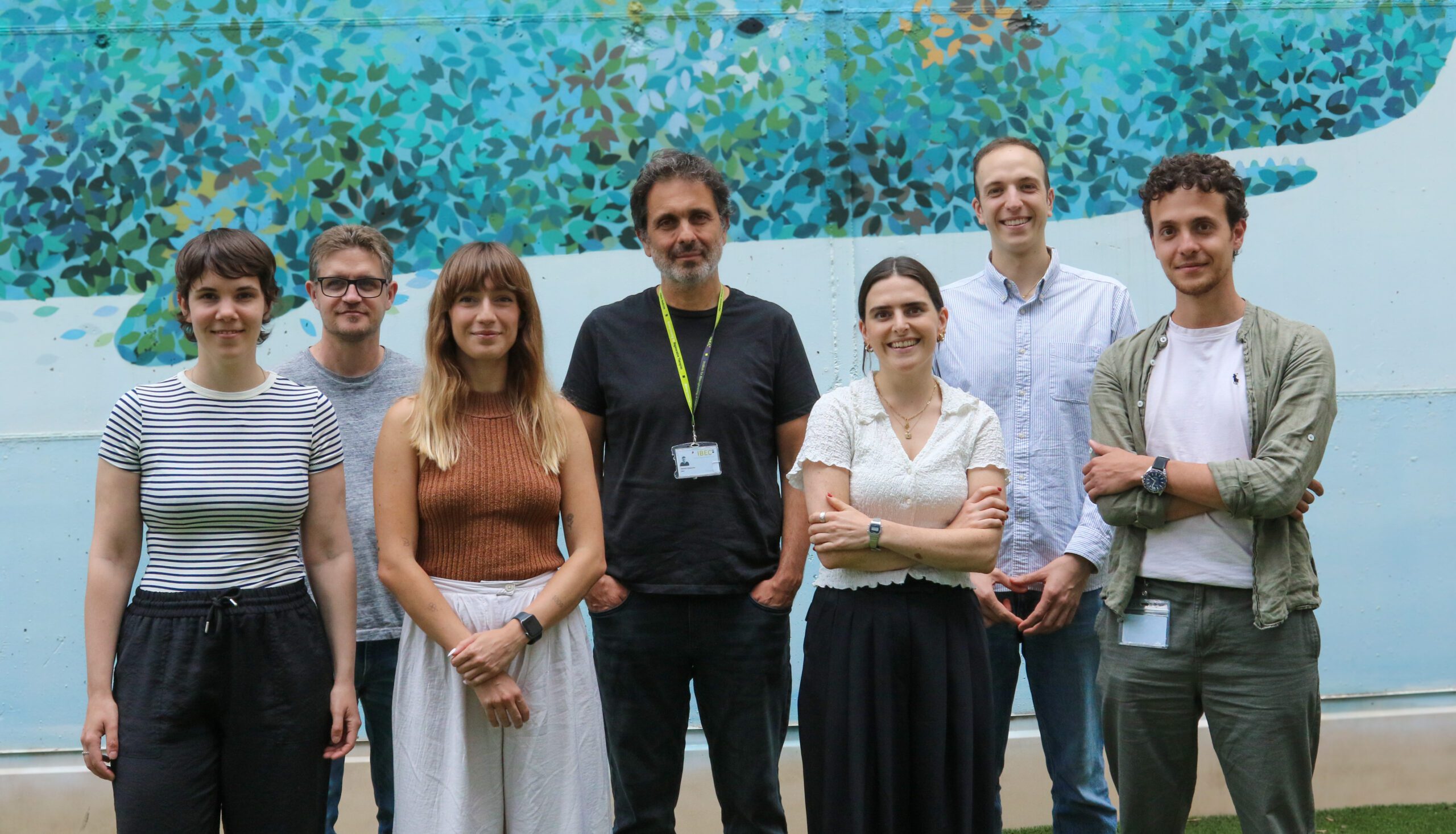ABOUT
We engineer biomaterials with controlled properties for applications in cell engineering, to support in vitro models and as tools for mechanobiology.
Our research focuses on the design of advanced biomaterials to engineer the cellular microenvironment, and has the potential to impact health by translating fundamental research into innovative therapies.
We have pioneered the design of materials that trigger the organisation of extracellular matrix proteins in a physiological way, a phenomenon that named material-driven protein fibrillogenesis (Science Advances 2016). We have also introduced new concepts in the field, such as the use viscosity to control cell behaviour (PNAS 2018); living biomaterials (bacteria-based materials) for stem cell engineering (Advanced Materials 2018); the low dose use of BMP-2 for bone regeneration (Advanced Science 2019), the relationship between matrix rigidity and metabolism (Nature Metabolism 2020) and interfaces that trigger the mechanical activation of growth factors (Advanced Materials 2024).
Our group develops radical new concepts that are pushed all the way through the translational ladder to tackle unmet clinical problems related to the health of people.
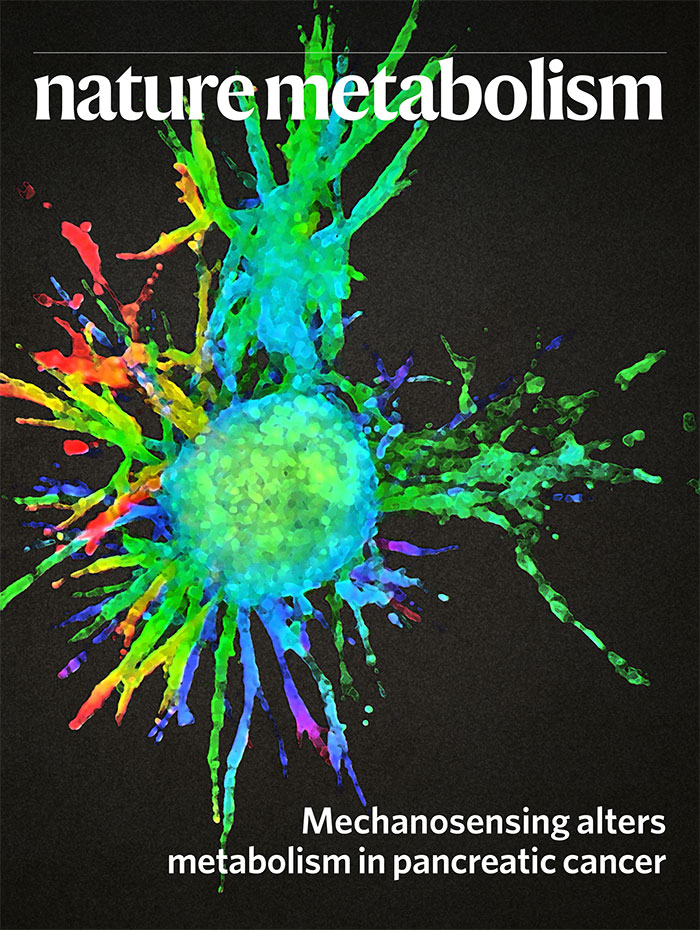
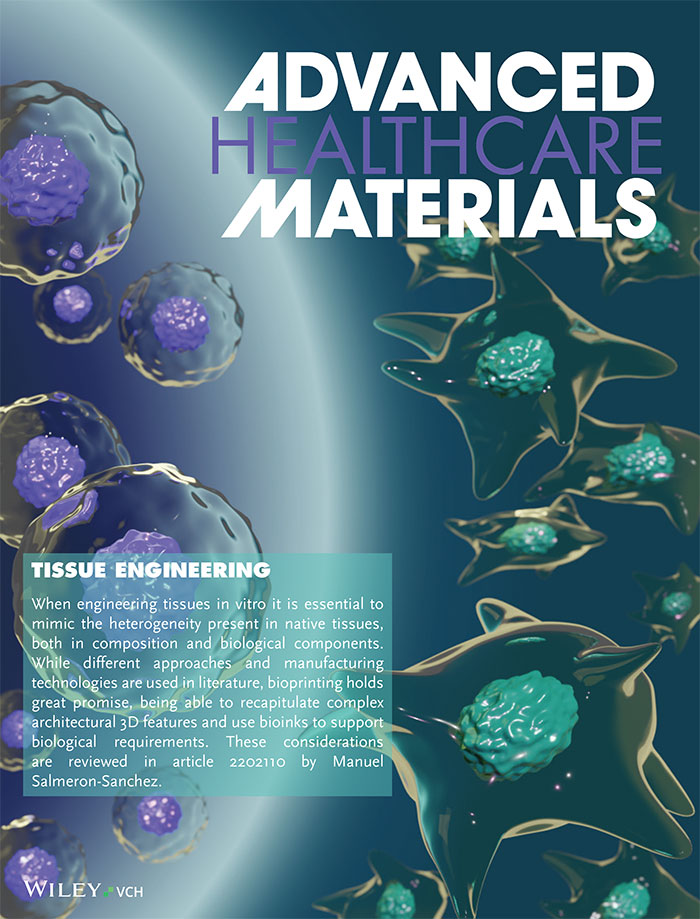
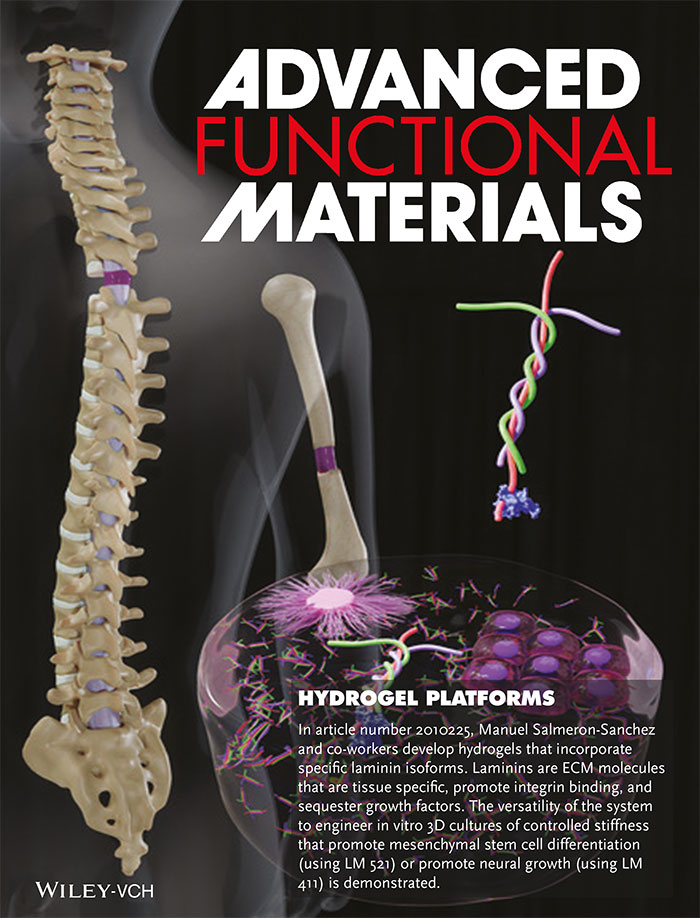
1. Engineered viscoelasticity in regenerative medicine and mechanobiology
We know that the extracellular matrix is viscoelastic yet most biomaterials that support tissue engineering and regenerative medicine approaches only consider the elasticity of biomaterials. We strive at design of materials where elasticity and viscosity can be tuned independently to provide 2D and 3D hydrogels that support dynamic cellular process and their physical remodelling.
2. in vitro models in health and disease
Improved in vitro models enable the study of human tissues in health and disease (e.g. cancer, degenerative diseases, inflammatory diseases), the assessment of new drug delivery tools (e.g. functional biomaterials, encapsulation delivery technologies, new microfluidic devices, etc.), and the cheaper and safer toxicity screening of new drug candidates. We develop robust extracellular matrix mimics, that provide the essential characteristics of a natural ECM in its ability to direct and control cell behaviour, yet with minimal complexity.
3. Engineered living biomaterials to control stem cell fate
Materials-based approaches to direct stem cell fate have resulted in major findings in relation to surface chemistry, stiffness and nanotopography. However, these models are a poor representation of in vivo behaviours, where cells interact with the extracellular matrix through a highly dynamic process. We have pioneered genetically engineered non-pathogenic bacteria that underpin living biomaterials that support stem cells. Living biomaterials that are responsive to small molecules and controlled by light will be new tools in the field.
STAFF
Manuel Salmeron Sanchez
 ibecbarcelona.eu
ibecbarcelona.euPROJECTS
| INTERNATIONAL GRANTS | FINANCER | PI |
|---|---|---|
| Devise · Engineered viscoelasticity in regenerative microenvironments (2023-2028) | European Commission / ERC AdG | Manuel Salmeron |
| NATIONAL PROJECTS | FINANCER | PI |
|---|---|---|
| Viscoliver · Hidrogeles viscoelásticos como plataformas de cultivo 3D de células hepáticas para el modelado de la enfermedad del hígado graso no alcohólico | Agencia Estatal de Investigación / Proyectos de Generación de conocimiento 2022 | Gloria Gallego & Manuel Salmeron |
PUBLICATIONS
EQUIPMENT
COLLABORATIONS
- Matt Dalby
University of Glasgow - Massimo Vassalli
University of Glasgow - Molly Stevens
University of Oxford - Pere Roca-Cusachs
Institute for Bioengineering of Catalonia - Sylvain Gabrielle
University of Mons - Amaia Cipitria
Biogipuzkoa Health Research Institute - Andrés Garcia
Georgia Institute of Technology - Gloria Gallego
Universitat Politècnica de València
NEWS/JOBS
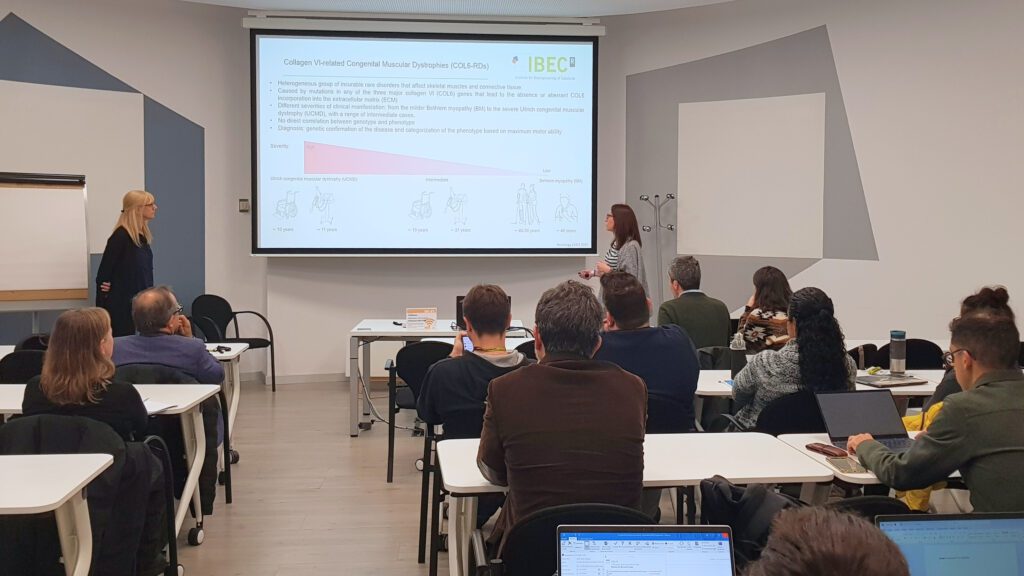
IBEC and SJD Barcelona Children’s Hospital strengthen their collaboration with a day of translational innovation
The Institute for Bioengineering of Catalonia and the Sant Joan de Déu Barcelona Children’s Hospital have held a joint conference to strengthen collaboration in bioengineering and translational medicine. The event, held this morning at the IBEC, highlighted innovative projects, presented a joint PhD programme and encouraged the exchange of ideas between researchers from both institutions.
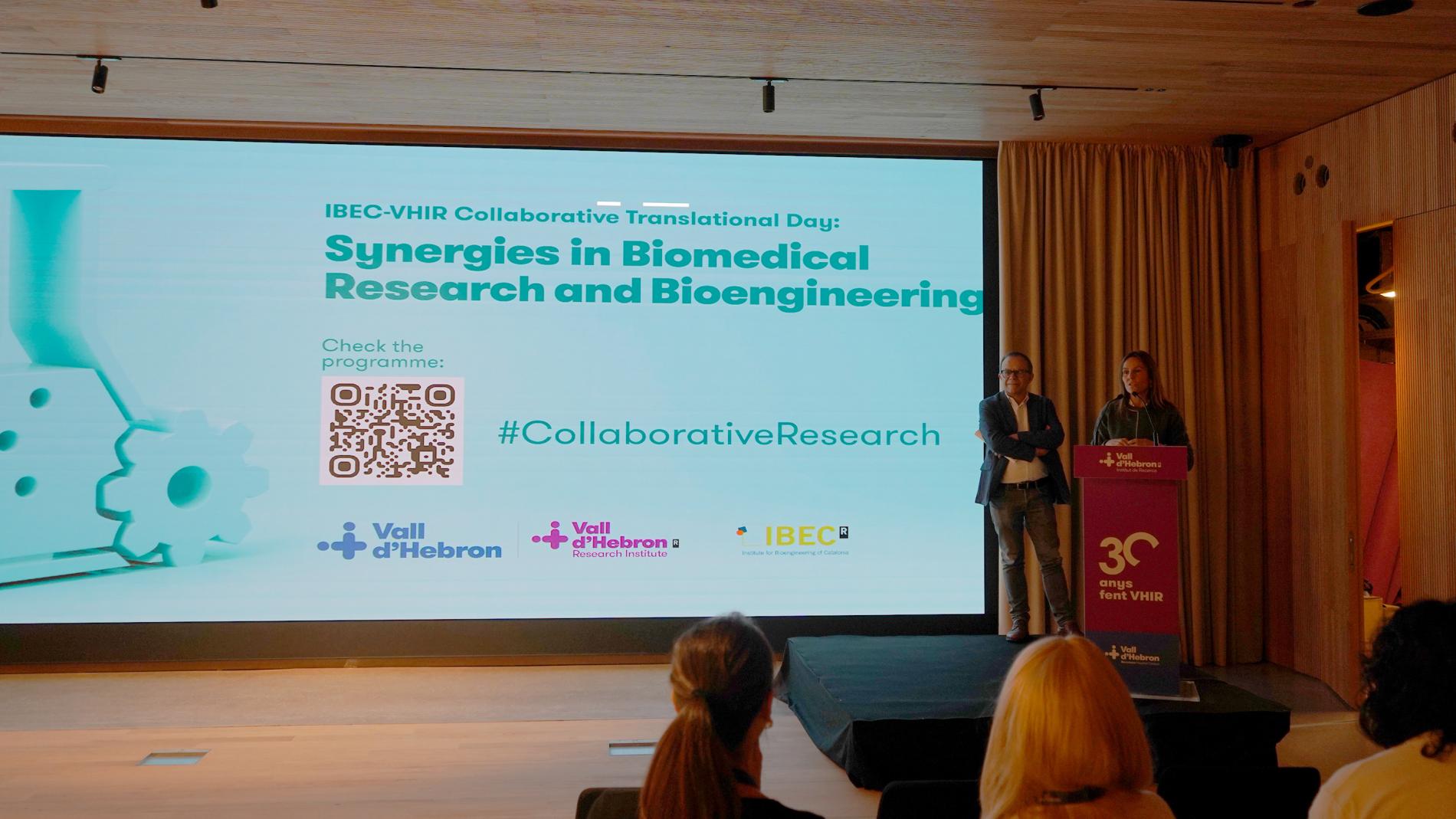
IBEC and VHIR hold a collaboration day to promote synergies
The 1st Translational Collaboration Day between the Vall d’Hebron Institute of Research (VHIR) and the Institute of Bioengineering of Catalonia (IBEC), held on 21st November, was an opportunity to learn about the projects and research lines of both institutions and to promote interaction between professionals.
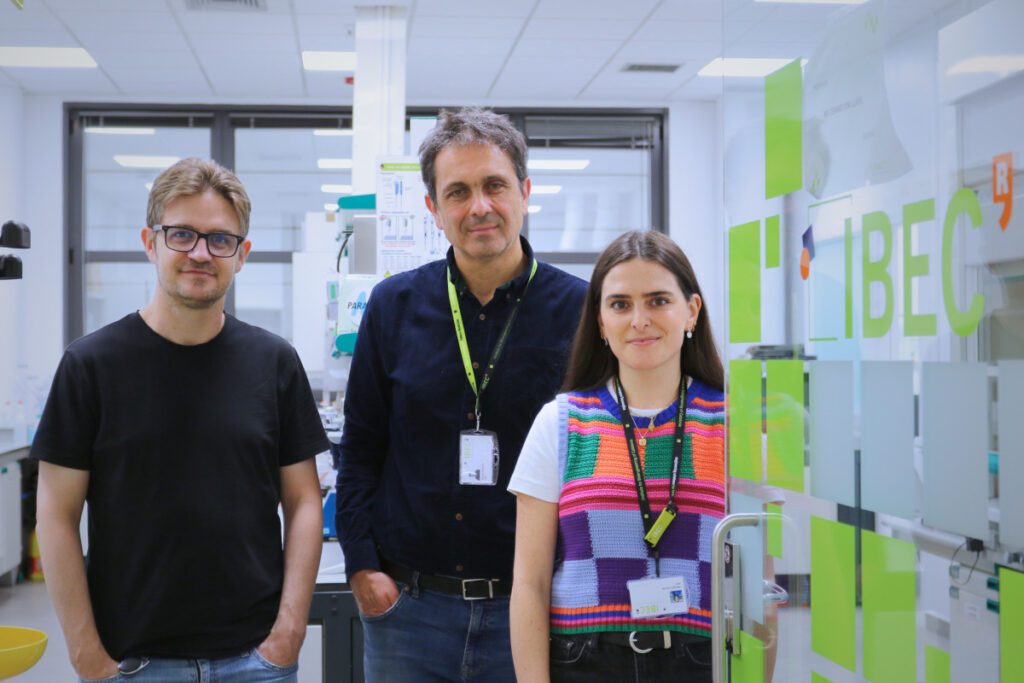
Viscosity of materials key to cell differentiation
An IBEC-led study has revealed how mesenchymal stem cells respond to the viscosity of their environment, a key aspect in their differentiation process. The research, published in Nature Communications, provides new insights that could revolutionise the design of biomaterials for regenerative medicine applications.
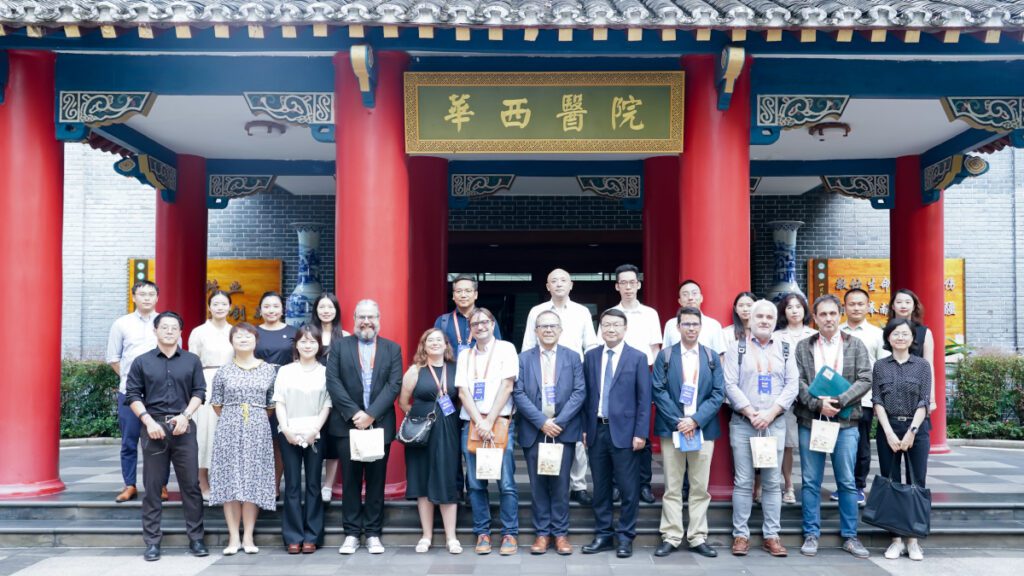
IBEC and West China Hospital strengthen collaboration in precision medicine
The second IBEC-WCH Precision Medicine Conference took place last week in Chengdu, China. This is a partnership between the Institute for Bioengineering of Catalonia (IBEC) and the West China Hospital (WCH) of Sichuan University, which aims to strengthen scientific collaboration between the two countries.
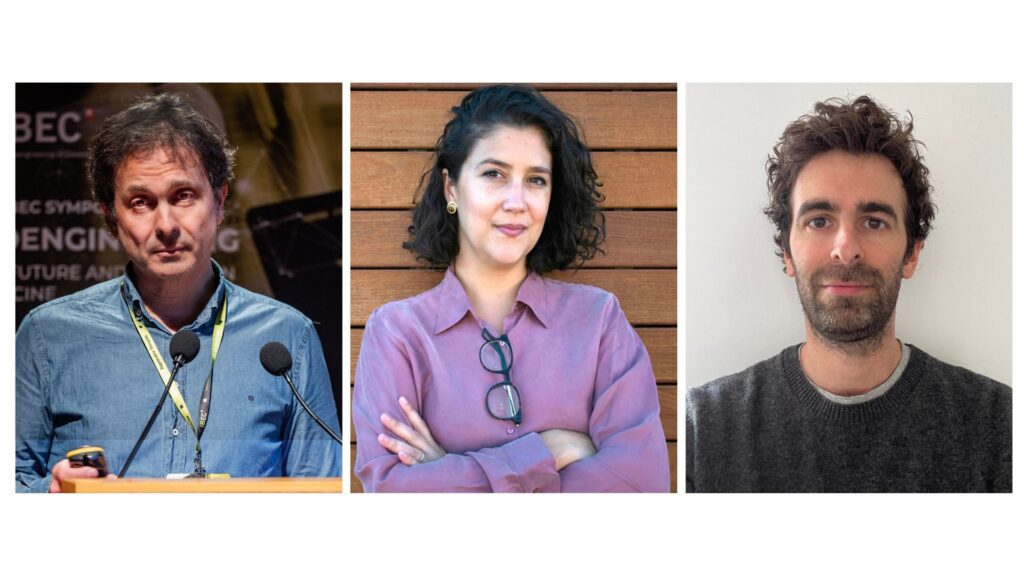
IBEC is strengthened by the addition of three new research groups in advanced and emerging therapies
IBEC kicks off 2024 with the incorporation of three new research groups led by Manuel Salmerón Sánchez, Zaida Álvarez Pinto, and Xavier Rovira Clavé. With these additions, IBEC strengthens its position in the field of advanced and emerging therapies.
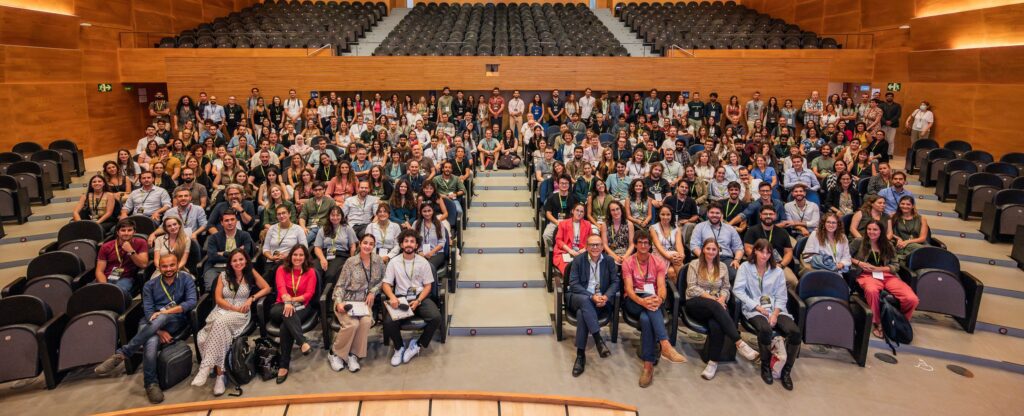
Bioengineering for future medicine in the 16th IBEC Symposium
IBEC’s 16th annual Symposium focused on ‘Bioengineering for Future and Precision Medicine,’ one of IBEC’s three key application areas. Approximately 300 people attended the event, including local and international researchers. It provided a multidisciplinary environment where experts from other institutions and the IBEC community had the opportunity to present their projects and exchange knowledge.

